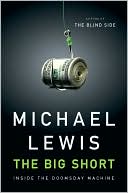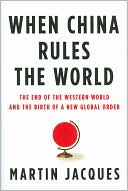Trouble with Africa: Why Foreign Aid Isn't Working
After years of frustration at the stifling atmosphere of political correctness surrounding discussions of Africa, long time World Bank official Robert Calderisi speaks out. He boldly reveals how most of Africa's misfortunes are self-imposed, and why the world must now deal differently with the continent.\ Here we learn that Africa has steadily lost markets by its own mismanagement, that even capitalist countries are anti-business, that African family values and fatalism are more destructive...
Search in google:
The World Bank's former spokesperson for Africa's controversial statement about who's to blame for the continent's problems Publishers Weekly It isn't the legacy of the slave trade or colonialism, or the supposed inequities of globalization and world trade, that are to blame for Africa's travails, argues this stimulating contrarian essay. The author insists that Africa's problems are largely of its own making, the product of dictatorial, kleptocratic governments; rampant corruption; economic policies that hobble agriculture, discourage private investment and strangle new businesses with red tape; and a cultural fatalism that inures Africans to misery. Calderisi draws on his experience as a World Bank official in Africa, peppering his analysis with personal anecdotes about Africa's callous, venal officialdom and misguided economic policies. He offers a muted defense of World Bank policies, but also decries Western "political correctness" in indulging Africa's dysfunctions and calls for a new tough-love approach to foreign aid. Assistance to most countries, he contends, should be cut in half and conditioned on thorough democratic reforms and strict oversight by Western donors; responsible governments-he lists Uganda, Ghana, Tanzania, Mozambique and Mali-should get a large increase in aid with few strings attached. Calderisi's focus on Africa's internal faults and his somewhat essentialist musings on the "African character" will stir controversy, but his cogent argument is an important addition to the conversation over Africa's future. (Mar. 9) Copyright 2006 Reed Business Information.
Pt. IWhat sets Africa apart1Looking for excuses132Africa from different angles353Thugs in power574Culture, corruption, and correctness77Pt. IIStories from the front line5Tanzania : African socialism1036Ivory coast : the end of a miracle1157Discord in Central Africa131Pt. IIIFacing the facts8Defying economics1419The trouble with foreign aid15310The Chad-Cameroon oil pipeline17711A clash of values195Pt. IVFacing the future12Ten ways of changing Africa20713A new day223
\ From the Publisher"This politically-incorrect work is a boisterous, entertaining and highly accessible polemic by a man who, when it comes to development and Africa, has every reason to know his onions. The author challenges the shibboleths of the aid industry with courage, compassion and humour. A timely and bracing read."—Michela Wrong, Author of In the Footsteps of Mr. Kurtz: Living on the Brink of Disaster in the Congo. "At first, this book made my hair stand on end, but then I saw it as the heartfelt cry of a lover of Africa who has devoted his best years to the continent. His analysis is disturbing and non-conformist, but I agree with his suggestions. He was not born one, but he is nonetheless a great 'African'."—Martin Ziguélé, Prime Minister of the Central African Republic (2001-2003) and runner-up in the March-April 2005 presidential elections. "The Trouble with Africa is a blast of fresh air over a continent that has for decades been suffocating under a blanket of well meant concern, ineffectual at best, and harmful at worst."—Michael Holman, former Africa editor, Financial Times"This is a hard-hitting, brutally honest personal essay about Africa. It is gripping, well-researched and fascinating. Corrupt and incompetent African government officials will fret over this but it is the bitter truth the African people would want told to the world."—George B.N. Ayittey, Ph.D., Distinguished Economist at American University and President of The Free Africa Foundation, Washington, D.C. "This is a timely, intriguing and provocative book. The author's love of the continent shines through every line, yet his bold suggestions will raise some eyebrows and provoke debate (as they should). The book ripples with good stories, mixes passion and reason, and is very often simply touching."—Baroness Lynda Chalker, former Minister of Overseas Development for the United Kingdom\ \ \ \ \ Publishers WeeklyIt isn't the legacy of the slave trade or colonialism, or the supposed inequities of globalization and world trade, that are to blame for Africa's travails, argues this stimulating contrarian essay. The author insists that Africa's problems are largely of its own making, the product of dictatorial, kleptocratic governments; rampant corruption; economic policies that hobble agriculture, discourage private investment and strangle new businesses with red tape; and a cultural fatalism that inures Africans to misery. Calderisi draws on his experience as a World Bank official in Africa, peppering his analysis with personal anecdotes about Africa's callous, venal officialdom and misguided economic policies. He offers a muted defense of World Bank policies, but also decries Western "political correctness" in indulging Africa's dysfunctions and calls for a new tough-love approach to foreign aid. Assistance to most countries, he contends, should be cut in half and conditioned on thorough democratic reforms and strict oversight by Western donors; responsible governments-he lists Uganda, Ghana, Tanzania, Mozambique and Mali-should get a large increase in aid with few strings attached. Calderisi's focus on Africa's internal faults and his somewhat essentialist musings on the "African character" will stir controversy, but his cogent argument is an important addition to the conversation over Africa's future. (Mar. 9) Copyright 2006 Reed Business Information.\ \ \ Library JournalIt's the disease, the climate, the corruption, the brutal dictators, the tribal factions, the European colonization, the slavery-you name it, everyone has a reason for Africa's continuing collapse. Here, an adroit former World Bank official suggests that the misfortunes are more self-imposed. Calderisi places the responsibility squarely on the shoulders of the Africans themselves, also blaming the continent's various leaders. With few exceptions, he writes, the economies have all declined since independence in the 1970s. Botswana, one of the exceptions, has a strong economy and a higher standard of living than nearly all other African countries, and yet 37 percent of its adult population carries the HIV virus, and the life expectancy has plummeted to 34 years. Many hopeful stories from the 1970s and 1980s have disappeared with the loss, through mismanagement, of markets to Asia and Latin America. Wealth for the continent's people has declined since 1970, and the immediate future looks grim. Calderisi proposes ten workable solutions to the problems, such as that funding for Africa be contingent upon democratic rule, making this book one that should be in every academic library in this country-and every library in Africa.-Jim Thorsen, Madison Cty. Schs., Weaverville, NC Copyright 2006 Reed Business Information.\ \








